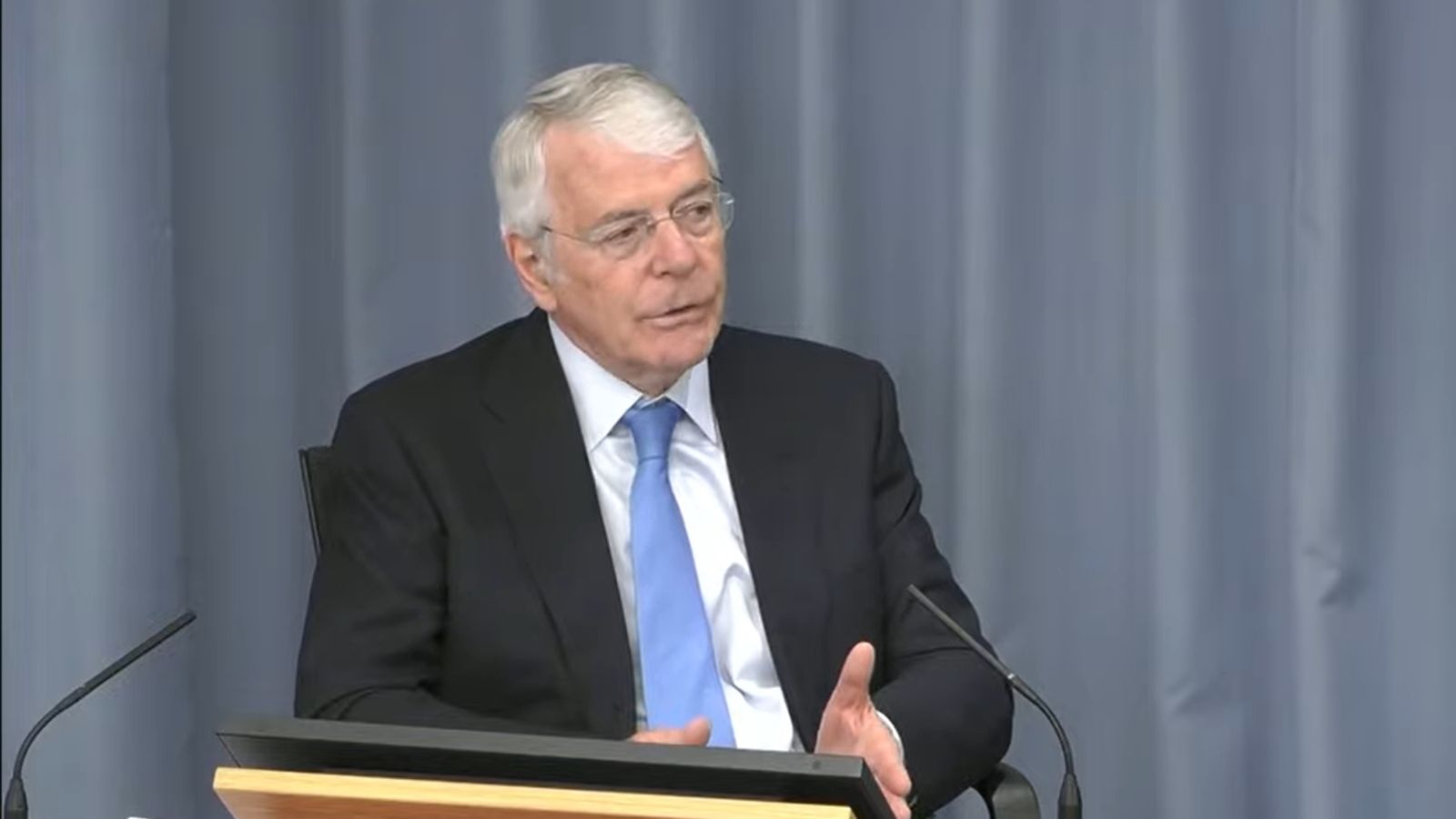Victims of the infected blood scandal had “incredibly bad luck”, former Prime Minister Sir John Major has said.
Giving evidence to a public inquiry into the healthcare catastrophe, Sir John described the growing sense in the late 1980s that compensation for haemophiliacs affected would be needed.
Almost 3,000 people died after being infected with HIV or hepatitis C by contaminated blood products imported from the US in the 1970s and 1980s.
Many were infected by supplies of factor VIII, an essential blood-clotting protein that haemophiliacs do not produce naturally.
The UK was reliant on supplies imported from the US, where it was manufactured with blood collected from prisoners, sex workers, drug addicts and other high-risk groups who were paid to give blood.
Read more:
‘We were injecting death’: Survivor infected with HIV at 15 wants answers after deaths of two brothers
New papers show senior medics allowed scandal to continue
People affected by contaminated blood scandal will get payouts if inquiry calls for it
Sir John described the effects of the scandal on victims as a “horror”, adding: “There’s no amount of compensation you can give that can actually compensate for what had happened to them.
Infected Blood Inquiry: Former Health Secretary Lord Norman Fowler refuses to apologise for ‘Don’t Die Of Ignorance’ AIDS campaign
Infected blood inquiry: Victims ask for censure of ‘arrogant, pompous and contemptuous’ Ken Clarke
Infected Blood Inquiry: Former health secretary Ken Clarke failed to present evidence demanded by victims, lawyer says
“What had happened to them was incredibly bad luck – awful – and it was not something that anybody was unsympathetic to.”
He said the decision to award compensation to the scandal victims put the Government into unchartered territory.
“It was the first time that any Government had actually made absolutely ex gratia payments for where there was no legal fault.
“That had not happened before so it was a new situation. … so we needed to ring fence it to avoid opening the option for a whole range of other claims to be made on wholly unrelated issues.”
Victims have long believed the extent of the contamination was covered up, and have urged the inquiry to call on senior officials and ministers to give evidence.
Former judge and chair of the inquiry Sir Brian Langstaff said the public inquiry would be “frightened of no one” and has promised to put people at the heart of the investigation.










